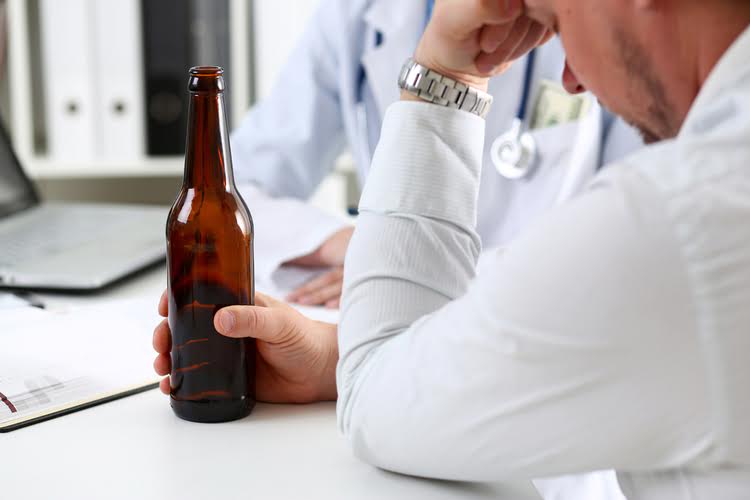Content
Having the right attitude, a positive one that is willing to look at the short-term and long-term benefits of changing, will be a great way to success. If you have been a frequent user of alcohol, you may need to have a physical and consult with a physician about the possibility of experiencing withdrawal symptoms while abstaining from alcohol. Symptoms can occur to different degrees based on history and prolongation of use. Drinking is such a big factor that the CDC has listed limiting alcohol intake as one of its four “totally doable New Year’s resolutions” that will reduce the risk breast cancer. “Day 28 now and it feels great to be sober. I know I have a long way to go but can sleep tonight knowing I didn’t have a drink yesterday and I haven’t had one today and I will pray tonight that I don’t have one tomorrow.” In the fourth week of abstinence from alcohol, the benefits keep piling up, according to the reports of those who remained sober for more than three weeks.
5 unexpected benefits of giving up alcohol – a thread
I never expected to be a non-drinker. I fell into it, accidentally. It was only meant to be for 30 days, but here I am over four years later – happier, healthier, calmer, more productive – all thanks to not drinking.
— Kate Gunn (@KateTakes5) June 26, 2021
Although each person’s experience will be unique, here’s a general timeline of what happens when heavy drinkers give it a rest. Common physical symptoms of withdrawal you can expect to experience during your first 30 days of sobriety. After trying this plan for 30 days, try it for another 30 days. Like anything else in life, it is not easy to change behavior, even when it might be in your best interest.
Treatment Options
It is important that you develop coping strategies for managing these triggers and maintain a support network of other sober people. If you do experience relapse, it is important not to view it as a failure but rather to take the opportunity to return to treatment or modify whatever treatment plan you’ve been following.
Plus I really wanna see these benefits of not drinking alcohol for 30 days
— Ursula Malbec?? (@AnzaForbes1) May 29, 2016
Some are finally able to get some sleep at day 5, while others still have problems sleeping. “I made it to day 4 though still can’t sleep. Insomnia is the worst thing now. The anxiety, sweats, and nausea in the morning have lessened a bit now. Just hanging on thinking if I make it a week it will be an accomplishment.” “Feeling a bit better. Luckily my biggest withdrawals are insomnia and very itchy skin, all over (face, arms, legs, back.) One concern I have is my swollen abdomen and well my body in general.” “Today I still have dark circles but the puffiness is better and my bloated belly is a little better. I had incredible gas pains for the first 3 days. I do still have that awful feeling like at any second I am going to go crazy.” “The third day sober feels like I’m in a big black hole and under great pressure – hard to breathe, future feels bleak, lost an old trusted friend in alcohol, can’t find an alternative. I hope this gets better and the headaches disappear.” “It’s been really tough, constant inner voice trying to persuade me just the one night drinking again would be okay. I have just had to surf the urges, keep busy and use all my strength.”
Not Drinking Alcohol Can Reduce The Amount Of Fat In Your Liver
In Freedom from Fear, Nobel Peace Prize winner Aung San Suu Kyi wrote, “If you’re feeling helpless, help someone.” So as I cut alcohol out of my life, I started to contribute to others. I offered to take people’s dogs for a walk or play with their kids and had wonderful conversations in old folks’ homes.

This is often the result of long-term liver damage though, with the first stage of liver disease being a buildup of fat from breaking down the alcohol. Thus explaining the side of exhaustion that normally accompanies our heavy hangover. After all, most of us treat ourselves to a huge lie-in after a night out. But as Dr Dan explains, it’s very much a case of quality over quantity with sleep.
Be Prepared To Feel Better
Once restful nights become a regular occurrence, tasks feel less arduous, work doesn’t drag as much, and when your kids ask you to play a board game, you’ll more likely say yes. Subtle physiological changes start occurring within 72 to 96 hours of no alcohol, says Johnson. The first big one most people will notice is sounder slumber, as alcohol majorly messes with sleep cycles.

We tend to be influenced by the people we’re around the most. So in order to cut alcohol from my life, I reduced the time spent with people who drank a lot. It’s difficult to argue with the largest and most detailed research into the global impact of alcohol, which found that the idea that “moderate drinking” was harmless or even beneficial was a myth . Thousands of people do Dry July or Feb Fast or some random month. I hadn’t had 30 days off alcohol my entire adult life.
What Happens After 30 Days Without Alcohol?
A relapse is unfortunate yes, but it is not to be the cause of putting your hard work to dust. Seek help and don’t let one little mistake bring you down. Make physical exercise and meditation a permanent part of your life. Meditation is known to bring peace and harmony to mind and keep negative emotions at bay. This is really important to avoid any dangers of a relapse. When you are in a peaceful place physically and mentally, you will not look for other ways to relieve yourself of stress and anxiety.

Alcohol also increases estrogen levels, which fuel the growth of certain breast cancer cells. An adequate intake of folate, at least 400 micrograms a day, when taking at least 1 drink of alcohol daily appears to lessen this increased risk. After a few months of refraining from Alcoholism in family systems booze, all of the positive changes that come from abstinence add up to significantly improved long-term health projections. “Within a month to a few months, we start to see a decrease in heart-related issues such as high cholesterol and blood pressure levels,” Johnson says.
Dry January Benefits
Just another one of the great benefits to not drinking alcohol. “Interestingly, these changes in alcohol consumption have also been seen in the participants who didn’t manage to stay alcohol-free for the whole month — although they are a bit smaller. This shows that there are real benefits to just trying to complete Dry January,” the researcher emphasizes. Moreover, people who went teetotal for a month also got drunk a lot less frequently later on in the year.
Sleep Guard Plus Review! I Tried It For 30 Days & Here’s My Results.. – Inter Press Service
Sleep Guard Plus Review! I Tried It For 30 Days & Here’s My Results…
Posted: Thu, 09 Dec 2021 09:15:00 GMT [source]
You can get your health, your life, your relationships back. You can try it on your own, but many of those 8,000 people surveyed were glad for professional help or wished they had professional changes after quitting alcohol medical help during their 30 days. At North Jersey Recovery Center, we understand recovery from alcohol use disorder. We are experienced in drug and alcohol detox and all that entails.
One Year Of Sobriety: My Experience & What You Can Expect When You Quit Drinking
Some of the exhibits are not for those with a weak stomach, but they are definitely unique and rare. Don’t forget that that’s what alcohol really is, it’s legal poison. Dr. Nutt rated 20 drugs based on the various harms caused by each drug, both to the individual and the harm caused to others. Alcohol topped the list over heroin, crystal meth and crack as the most harmful drug anyone can take. If you have pain from an injury or surgery, be careful with the pain medication. Ask your doctor about non-medical ways to manage pain. Alcoholics Anonymous are other ways to build a support network.

“Now, with hard work and vigilance, I am pleased to be getting more sober time in. I am exercising more and starting to decrease the number of herbs and vitamins I have been taking daily.” “I still have no desire to drink and I hope that lasts forever! The withdrawals are long gone, just insomnia.” “Had a slight craving today but that is going to happen, as long as I remember what I want and remind myself of all the crap alcohol has caused me I should be fine.” “I realize this is no easy task. I am in my thirties and just now have decided to quit. Today is day 14 and I am not sleeping right I snap at everyone.” “Today is day 13. Most symptoms are gone except constipation and occasional shakes. Been sleeping really good.”
Benefits Of Not Drinking Alcohol: 16 Amazing Health Benefits Of Ditching The Booze
Initially, and for sometime afterward, alcohol may seem to enhance certain experiences. People may seem more accepting or less judgmental, and you might feel you “fit in.” You may convince yourself that experiences are more enjoyable and conversation more relaxed. These beliefs can help rationalize the negative experiences that might also occur.
- In order to moderate use, temporary abstinence is the best way to get there.
- Once you are nearly 6 months sober, your body’s natural levels of dopamine begin to restore and you will notice positive changes in your mood.
- “I wake up daily feeling like I have a hangover and it’s bad. My back hurts and my body is achy. I sweat through the day can’t think clearly, irritable and mad about everything. I can’t sleep I wake up constantly and have horrible nightmares.”
- “Additionally, that deeper sleep will probably promote snoring and poorer breathing.
Legal consequences often affect future opportunities such as employment, admittance to academic programs, or studying abroad. Money can become an issue with the need to support drinking or other use.

Comment (0)